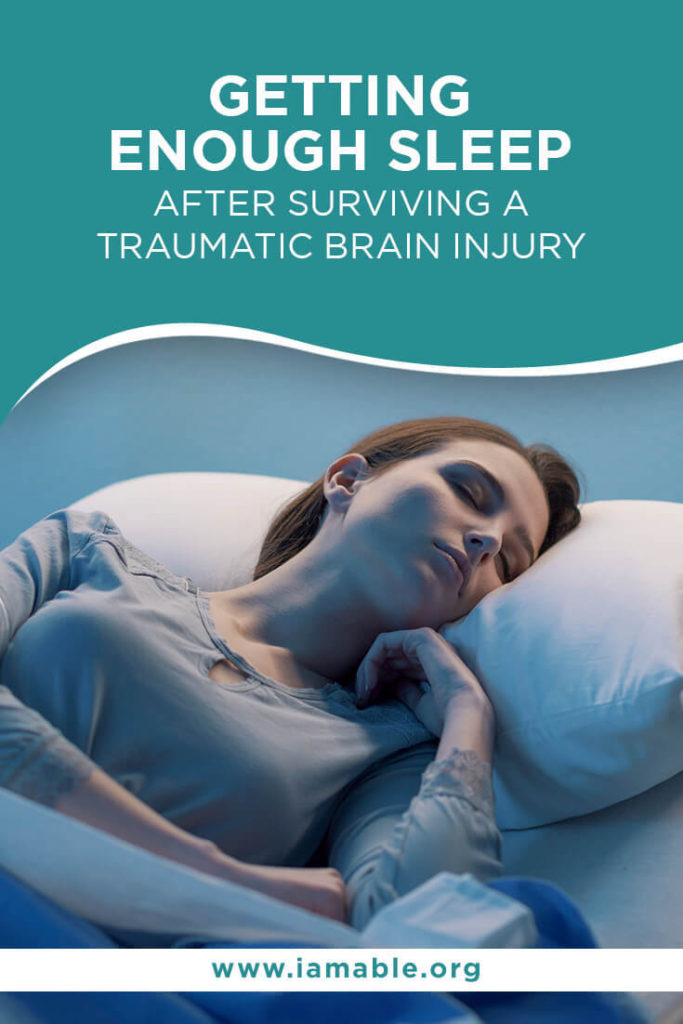Miami, FL 33186

Each year, about 170,000 people from Miami and other parts of Florida suffer from traumatic brain injuries. Thankfully, some members of this population overcame their injuries. Others also actively look for ways to speed up their traumatic brain injury recovery in Miami. However, some struggle to jumpstart their healing and recovery journey because of sleeping problems.
Does this sound similar to your situation? Do you know someone who has the same problem? Learn how you can get better sleep while recovering from a TBI with the help of our patient guide below.
Several studies have long proven the connection between sleep and traumatic brain injury recovery. One notable example would be the study on Iraq/Afghanistan veterans who previously suffered from TBI. The researchers found that veteran soldiers who joined the study experienced sleep-wake disturbances. The MRI scans of the soldiers showed an inflamed Virchow–Robin space (perivascular space), suggesting poor drainage of toxins and other wastes and disrupted brain function.
Besides this study, you can also check the 2018 research paper on TBI in young athletes. The researchers found that the sleeping disturbances experienced by recovering athletes caused further problems, including migraines, impaired cognition, and neuropsychological disorders.
In addition to these two studies, here are other interesting facts and figures which further emphasizes the importance of good quality sleep in facilitating a steady traumatic brain injury recovery in Miami:
So, what causes sleep-wake disturbances in recovering TBI patients? How can survivors work around their situation to help their bodies cope better? According to some studies, it might help to retrace the factors that impact your sleeping patterns. Some examples of these include:
Medicines like antihistamines and OTC sleeping aid drugs can cause sleep-wake disturbances. Be sure to talk to your physician to adjust dosages or switch to better medication options.
Spinal misalignments can sometimes develop because of a traumatic brain injury. Unfortunately, this can affect the brainstem, which regulates several functions, including sleeping patterns and breathing.
TBI survivors often have fewer neurotransmitters inside the brain than an average person. As a result, it might take a few weeks before the body manages to stabilize neurotransmitter levels.
Sometimes, TBI can render patients inactive for several weeks or months. Unfortunately, this can impact sleep quality and trigger various sleeping disorders.
Traumatic brain injuries can cause widespread pain that might prevent you from getting enough sleep. The pain can also disrupt sleep patterns, especially if certain sleeping positions trigger an uncomfortable sensation.
Several studies link TBI to the onset of depression and anxiety. Notably, several researchers note that mental and emotional problems can disrupt sleep and vice versa.
Now that you have a better grasp of the importance of sleep in achieving traumatic brain injury recovery in Miami, let’s look at some helpful tips you can try. Hopefully, by making a few changes to your environment, lifestyle, and behavior, you can counter the problems that cause sleeping issues.
A well-established routine can help you train your body to wake up or sleep at the time of the day. It will also help you boost your energy levels and improve cell repair rate.
Harvard Health explains that blue light exposure can increase diabetes, hypertension, and obesity risks. On top of that, blue light can disrupt your circadian rhythm. So we suggest keeping your gadgets away from reach at least two hours before your scheduled sleeping time.
Drinking alcohol to enjoy restorative sleep is counterproductive. That’s because studies explain that it can aggravate sleeping problems and cause you to wake up several times to empty your urinary bladder.
Doctors and sleep specialists strongly recommend making a few changes to the bedroom if you don’t get enough. You can start by switching to dimmer lights. Then, you can invest in better beddings and sleeping aid devices.
Several studies have proven the role of maintaining an active lifestyle in preventing TBI complications and side effects (such as sleep-wake disturbances). So, you might find it helpful to tap into activity-based therapy. At iAM ABLE, we use this program to help TBI survivors. It has changed the lives of many TBI patients and their loved ones.
Indeed, sleeping problems remain a significant concern of TBI survivors. We hope our tips can help you enjoy sound sleep and eliminate risk factors that might be preventing you from getting better. So, are you ready to take the next step towards a complete traumatic brain injury recovery in Miami? Learn more about the essential tasks you need to work on by downloading our eBook.
Grab our free e-book 7 Unbelievably Important Steps to Take to THRIVE after Paralysis by clicking the image below.
